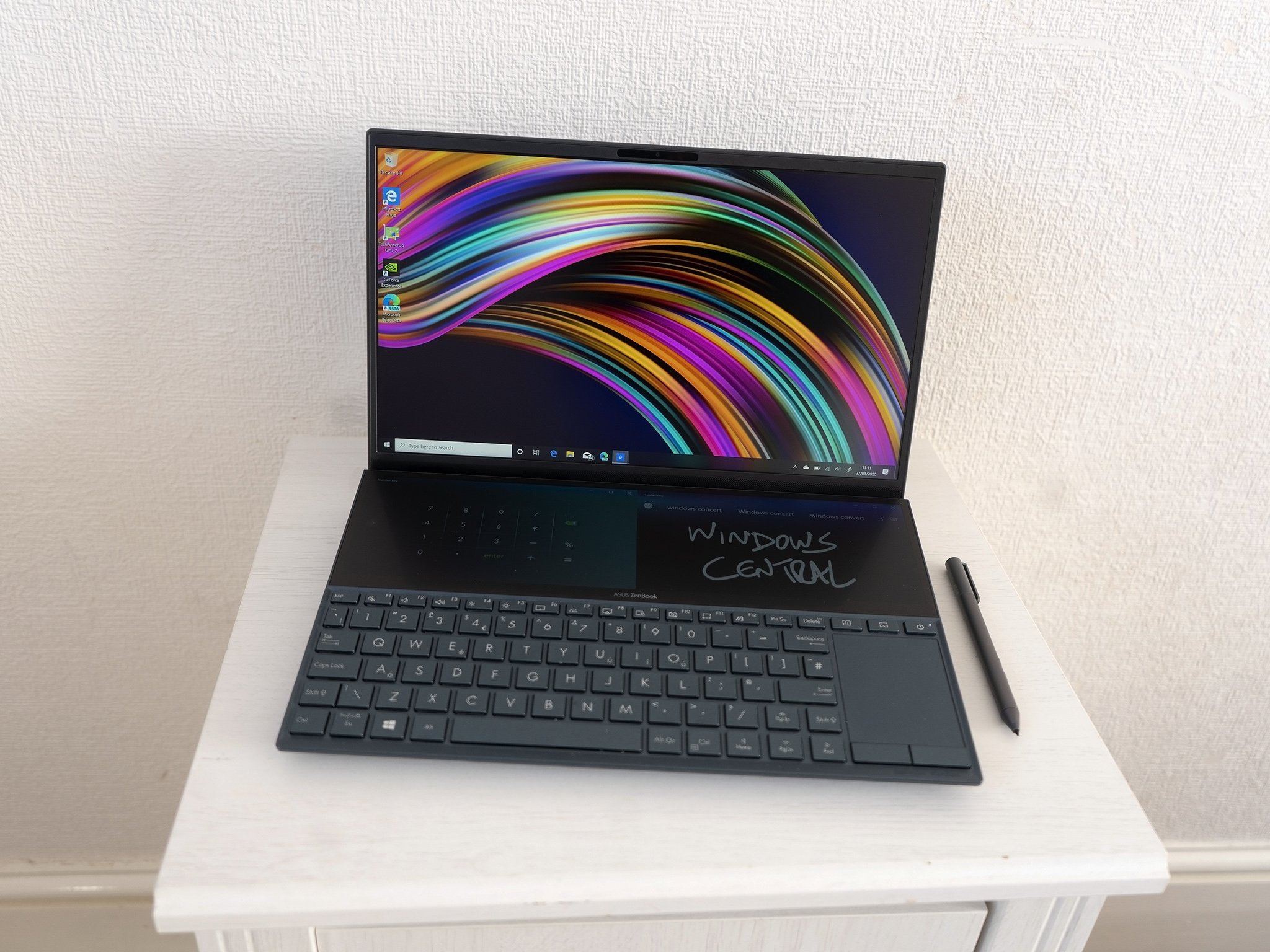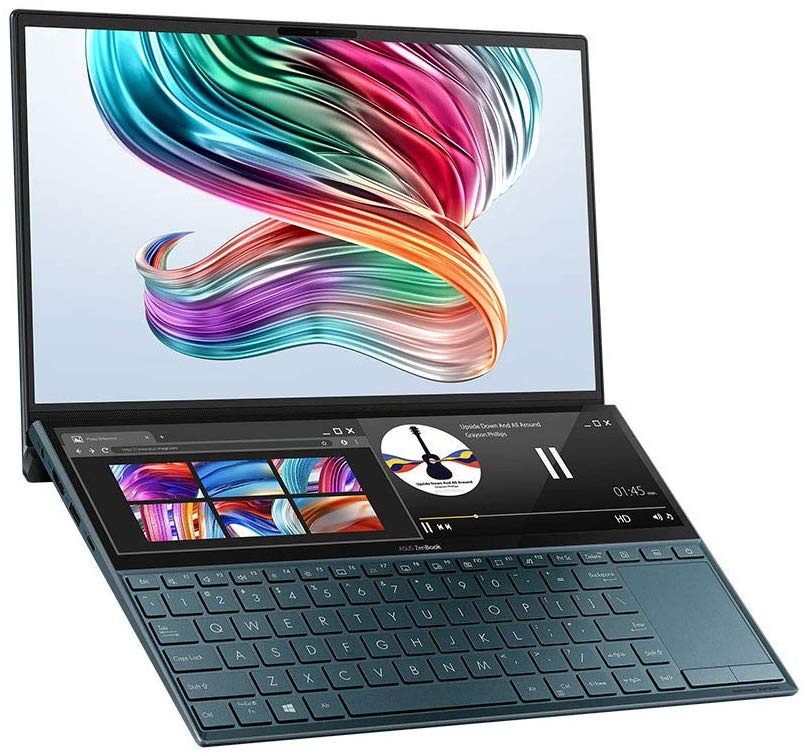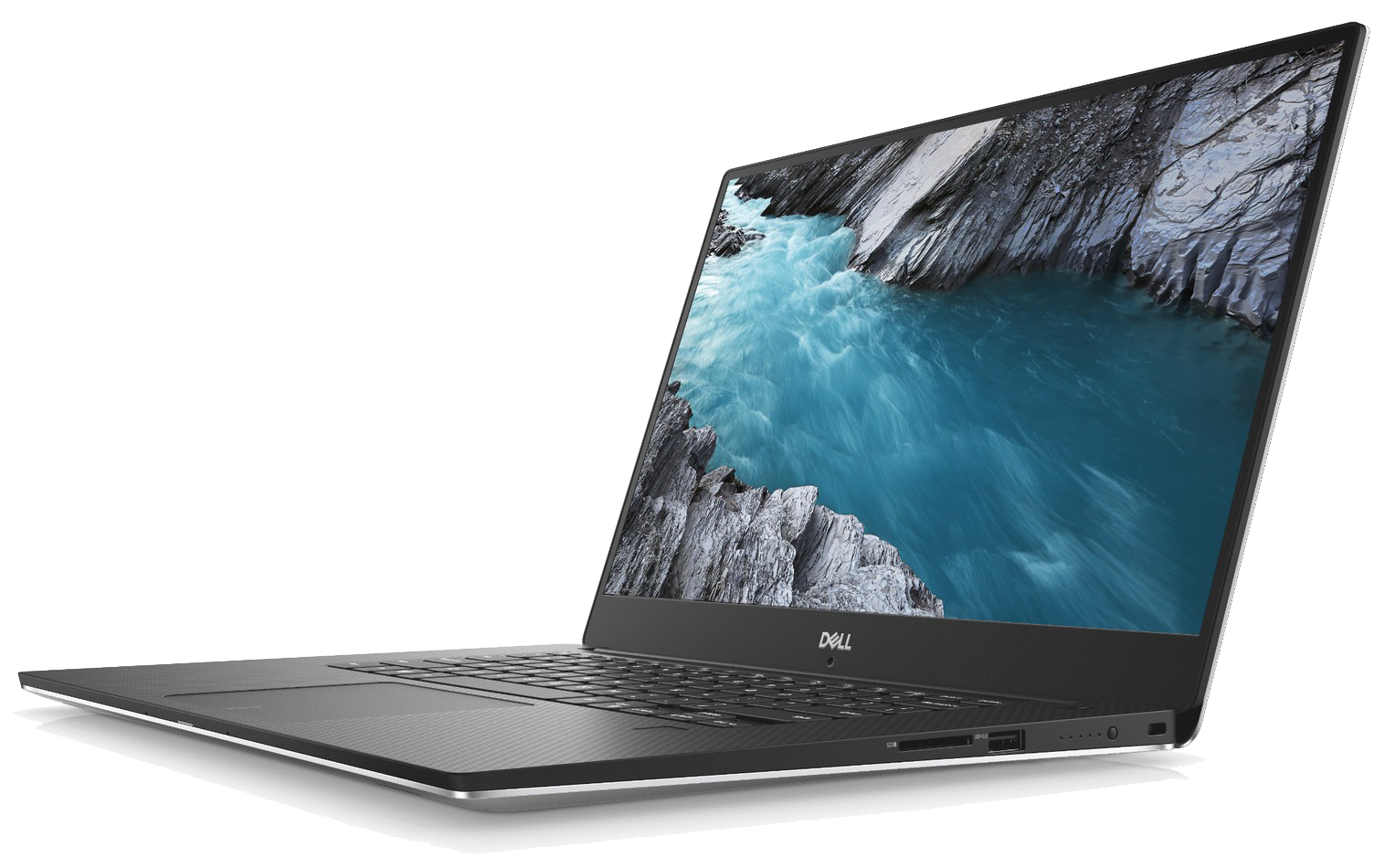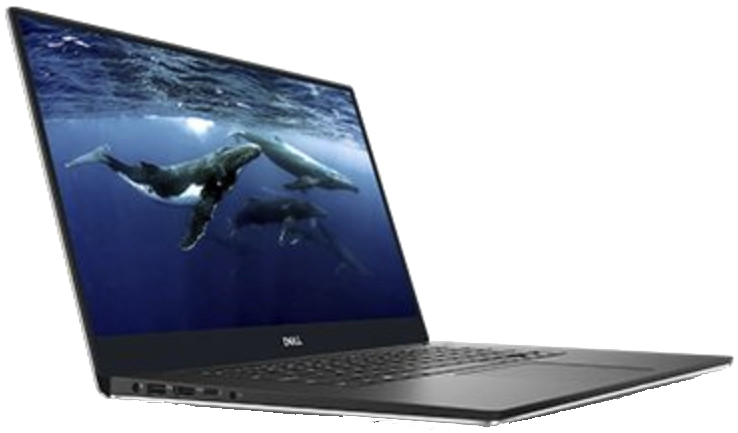ASUS ZenBook Duo vs. Dell XPS 15: Which is a better buy?

All the latest news, reviews, and guides for Windows and Xbox diehards.
You are now subscribed
Your newsletter sign-up was successful

Wow factor
The ZenBook Duo is a remarkable laptop at an attractive price, not only boasting the latest and greatest internals but also that extra display panel with a pen that genuinely changes how you use an Ultrabook.
Pros
- Compact
- Secondary display panel
- Attractive price
- Powerful internals
- Included pen
Cons
- Not yet available in the U.S.
- Quite chunky
- Small trackpad

Portable powerhouse
The newest XPS 15 from Dell packs everything you need for a powerful 15-inch laptop, including new options for an OLED 4K panel, GTX 1650, and an Intel Core i9 processor all wrapped up in a thin, light, compact body.
Pros
- Dedicated graphics options
- Newer, more powerful processors
- Gorgeous optional 4K OLED display
- Great battery life
Cons
- More expensive
- Not all configurations have touch
- No pen support
These are both brilliant laptops that are similar in size, pack high-end tech, have stunning designs, and first-rate build quality. You can't make a bad choice, but there's a killer reason why you'd go for it the ZenBook Duo over almost anything else.
ASUS ZenBook Duo vs Dell XPS 15 - tech specs
| Category | ASUS ZenBook Duo | Dell XPS 15 |
|---|---|---|
| Display | 14-inch, 1080p non-touch 12.6-inch ScreenPad Plus touch-enabled | 15.6-inch 1920 x 1080 InfinityEdge 15.6-inch UltraSharp 4K 3840 x 2160 InfinityEdge 15.6-inch OLED 4K 3840 x 2160 InfinityEdge |
| Processor | Intel Core i7-10510U | 9th Gen Intel Core i5-9300H (4.1 GHz) 9th Gen Intel Core i7-9750H (4.5 GHz) 9th Gen Intel Core i9-9980HK (5.0 GHz) |
| Graphics | NVIDIA MX250 2GB | Intel UHD Graphics 630 NVIDIA GTX 1650 (4GB GDDR5) |
| Memory | 16GB 2133 MHz LPDDR3 | 8GB/16GB/32GB DDR4 |
| Storage | 512GB PCIe SSD | 256GB PCIe SSD 512GB PCIe SSD 1TB PCIe SSD 2TB PCIe SSD |
| Security | IR camera for Windows Hello | Fingerprint reader (optional) |
| Ports | 1 x USB 3.1 Gen 2 Type-C, 1 x USB 3.1 Gen 2 Type-A, 1 x USB 3.1 Gen 1 Type-A, 1 x HDMI, 1 x Audio combo jack, 1 x MicroSD card reader | 1x Thunderbolt 3 with DisplayPort 2x USB 3.1 Gen 1 1x HDMI 2.0 SD card reader (SD, SDHC, SDXC) 3.5mm combo jack |
| Battery | 70Wh | 56Wh 97Wh |
| Weight | 1.5kg (3.3lbs) | From 1.8kg (4 lbs) |
Two screens are better than one
The ZenBook Duo is a little smaller than the XPS 15, it's a little cheaper on some spec levels, and it has one standout feature that the XPS 15 doesn't have.
On a sheer performance comparison, the ASUS falls in the middle of Dell's XPS 15 range. It has a 10th Gen Core i7 and the NVIDIA MX250 GPU, which is a solid performer. The ZenBook Duo doesn't quite have the sheer CPU performance you get from an XPS 15, but it's capable, and on balance, a good value. You're not going to get this thing for gaming, either, but it'll be able to handle some lighter titles when you're finished working.
The second display is a real game-changer.
Lots of the hardware is comparable, and while the ZenBook Duo has a lower resolution display — coming only in a 1080p panel — it's hardly a dealbreaker at this size, and the color reproduction is still excellent. It's a great display.
ASUS's secondary display, the ScreenPad Plus, is the real draw. It's an entire display panel with both touch and digital pen support that you can tap, write on, or use to display any application the laptop can run as well as some custom ones ASUS designed to help you get the best from it.
This is no gimmick, though. There are compromises attached, like a slightly cramped keyboard layout and a small, off-center trackpad, but it will genuinely change how you use a laptop. Just by having a bit more screen to play with, it opens up your workflow to be much more flexible. Thanks to the included pen you've got access to inking in Windows 10 without having to reach up to the display.
XPS 15 has the raw power
One of the major hardware differences between these two laptops is the processor. The XPS 15's Core i5, Core i7, and Core i9 processors are six-core or eight-core chips that sport more raw power even than the 10th Gen Core i7 in the ZenBook Duo.
All the latest news, reviews, and guides for Windows and Xbox diehards.
The difference matters most for heavy-load processing, making the XPS 15 a better choice for developers, graphic artists, and anyone else who does a lot of data crunching. The ZenBook Duos CPU is no slouch; it's actually very good, but Intel's 10th Gen laptop chips that are a direct successor to those found in the XPS 15 haven't been released yet.
The XPS 15 is seriously powerful, with options including a Core i9
If more power is something you need, you should stop right here and order a higher-end XPS 15 configuration. It's also pretty decent for gaming and tasks like video rendering thanks to the NVIDIA GTX 1650 graphics. It also has an optional 4K display, something you can't get on the ZenBook Duo.
Believe it or not, the XPS 15 is also cheaper at some spec levels, too, the basic models substantially so. While you're trading quite a lot of performance, if you just want a good laptop without any fuss, it's still a solid choice.
A great choice for all
If you're happy about meeting the price, the ZenBook Duo is a great laptop. The package represents excellent value, and it has a real wow factor.
It's quite chunky for a 14-inch laptop, but that's a small tradeoff to make for all the brilliance on offer. The key feature is the ScreenPad Plus, and it genuinely changes how you're going to use a laptop. But with dedicated graphics on tap, a good looking screen, strong battery life, and great specs, it's an excellent all-rounder for anyone.
If you're just looking for a good laptop that can do essentially everything pretty well, at this price it's definitely worth it.
Currently, it's not available in the U.S., but it is slated to go on sale there before the end of Q1 2020.
If you want a little more
When you step up the hardware, the decision comes down to what you want. If graphics and raw computing power are essential, grab the XPS 15 instead. It has some genuinely mindblowing specs for a laptop of this size, including a Core i9 processor and 4K OLED display.
It's great for everyday computing, more serious creative or programming work; you can even do some decent gaming on it. It comes at a price, but it's worth paying if you need the power.
The entry-level models are cheaper than the ZenBook Duo, but it's at the higher, more expensive tiers where the XPS really shines.

Richard Devine is the Managing Editor at Windows Central with over a decade of experience. A former Project Manager and long-term tech addict, he joined Mobile Nations in 2011 and has been found in the past on Android Central as well as Windows Central. Currently, you'll find him steering the site's coverage of all manner of PC hardware and reviews. Find him on Mastodon at mstdn.social/@richdevine


